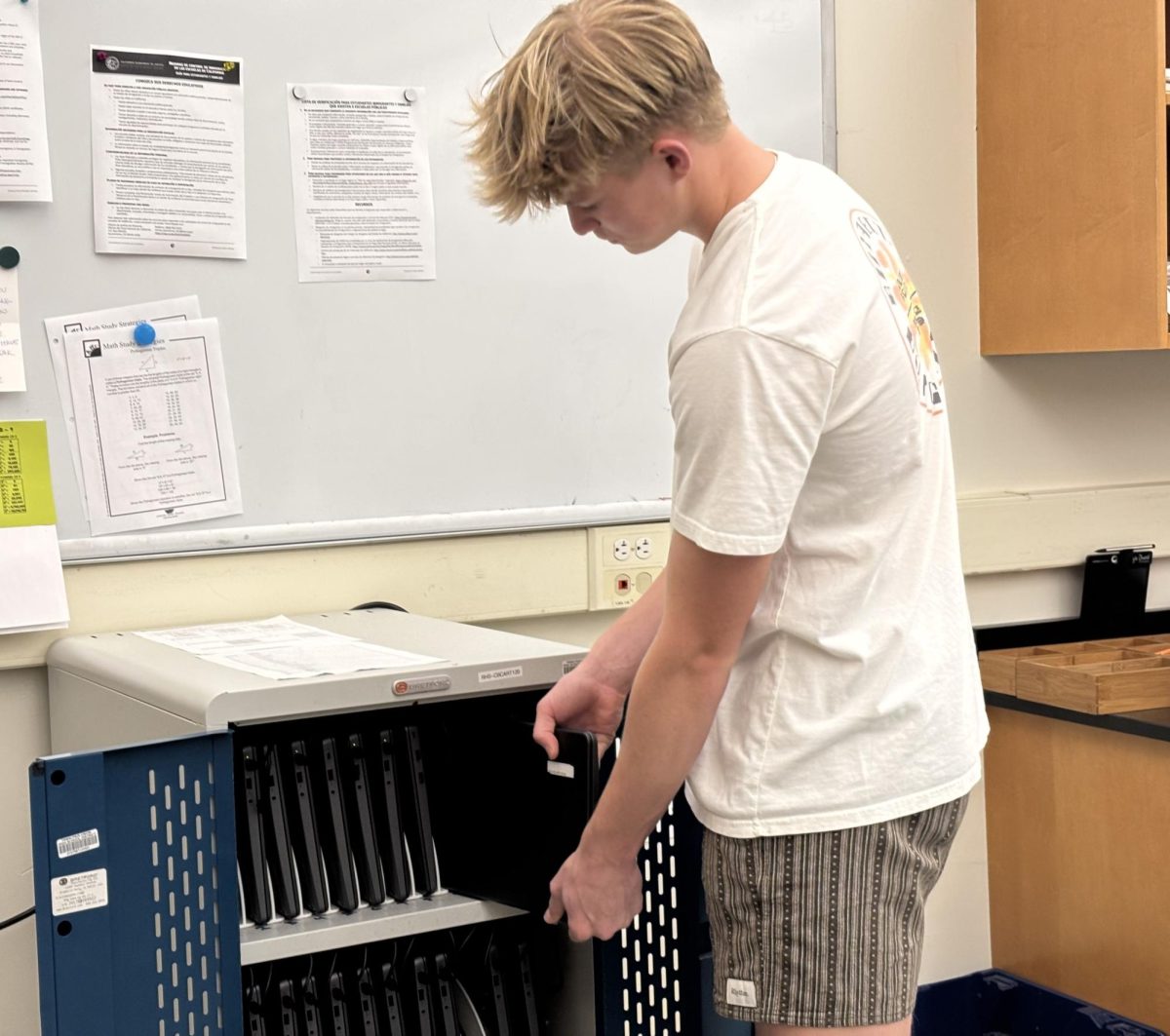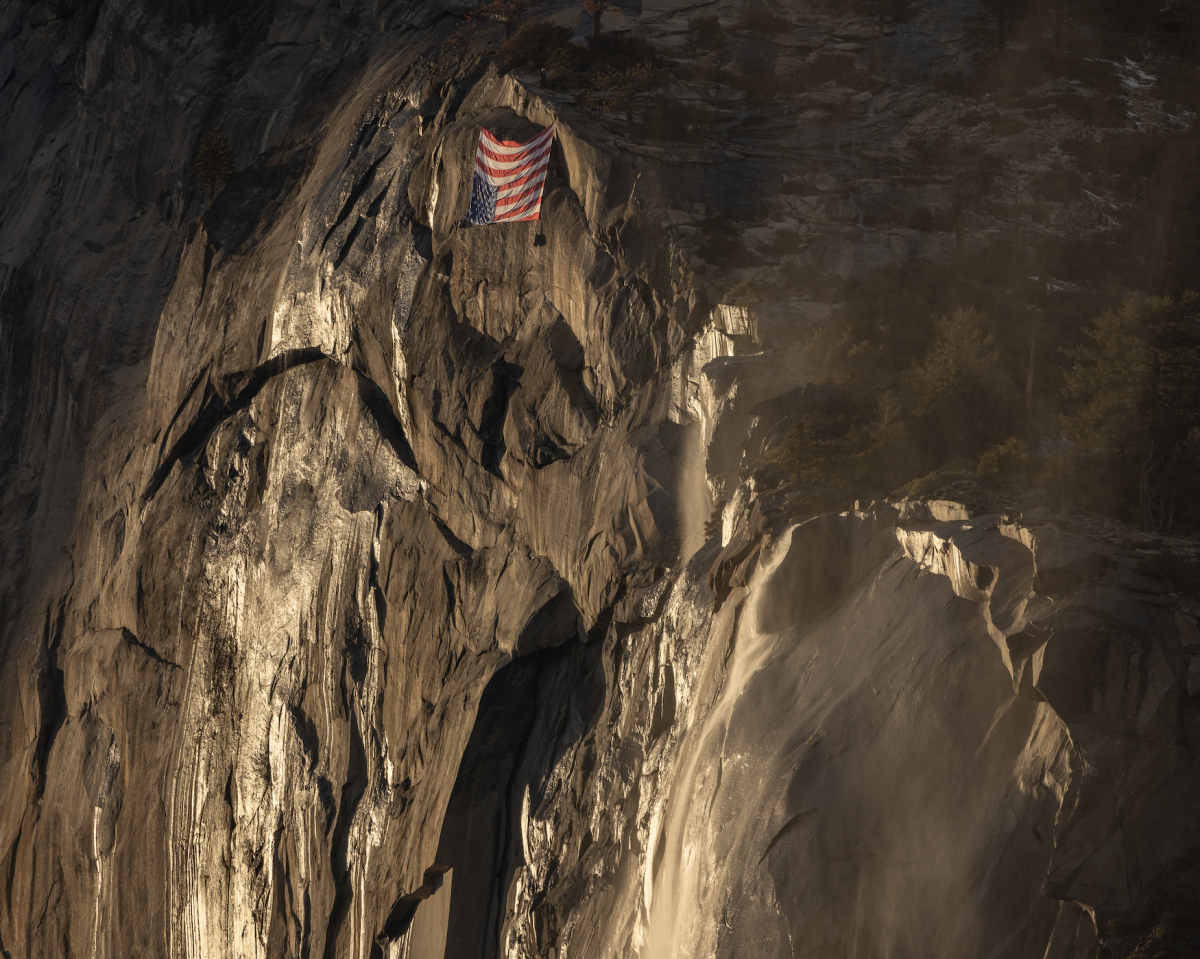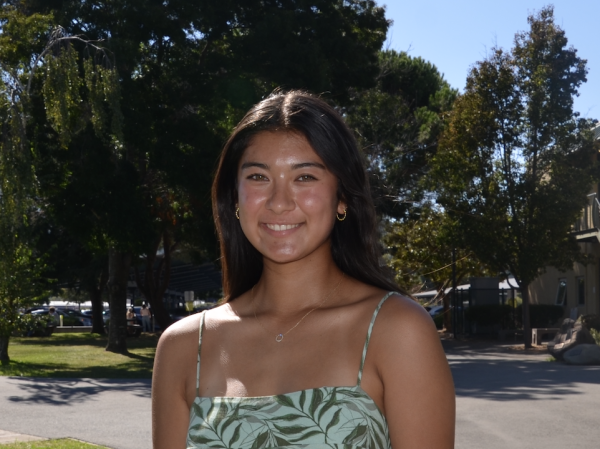On Oct. 24, The Commonwealth Club of San Francisco invited the World Press Institute’s (WPI) 2024 leaders in international journalism to discuss political issues through a global lens. Prior to the official event, students conversed with six of the 10 WPI fellows, getting an insider look into the reporters’ trip across the United States and their take on the San Francisco Bay Area.
Fellows came from an array of backgrounds, with reporters from Brazil, Bulgaria, Finland, India, Italy, Kosovo, Nigeria, Peru, South Africa and Ukraine. This diversity of perspectives facilitated a multi-angular discussion spanning from the fellows’ trip to San Quentin Rehabilitation Center to their motivation for journalism.
Bark students got to speak one-on-one with Gugulethu Mfuphi, a financial reporter and host of podcast KayaBi on Kaya 959. As a 2024 WPI fellow, Mfuphi shared insights into the international journalism community, giving Bark reporters a taste of the global media landscape.

“I never had intentions of becoming a journalist,” Mfuphi said. “The one thing that I’ve learned about journalism, as much as I’ve switched into financial journalism and economic broadcasting, is the fact that you can become an industry expert on almost anything.”
Mfuphi isn’t the only reporter who noted this variety of choice within the journalism community. Finnish reporter Sanna Raita-aho, who works in politics for the Finnish News Agency, has repeatedly heard the rumor of a dying journalism community but hasn’t let that impact her career.
“[I hear that] the media has no future at all – that it will die – [and] I feel that [the industry] has been repeating this message [for years], and it’s not true,” Raita-aho said.
As topics ranged from current events to international relations, issues of artificial intelligence (AI) and the impacts of social media arose in discussion. The opportunity to talk with journalists from numerous countries highlighted the impact of journalism on the international level.
Anando Bhakto, a reporter from India who acts as a Senior Assistant Editor for Frontline, noted the growing prevalence of AI in the globalized world, compared with the lack of the technology in his local community.

When Price asked Bhakto a question about AI, Bhakto expressed that AI has not changed his country in particular due to lesser access to technology compared to other parts of the globe. Bhakto instead answered the question by speaking on the injustices of the international community and how journalists have been able to report on these with the credibility not associated with AI.
With the 2024 election, students have become increasingly engaged with national and local politics. By obtaining wisdom from the world’s leading journalists, student reporters were brought to the forefront of multi-faceted stories. As the world enters an “age of globalization,” as Anando calls it, social media plays an important role in acquiring this array of perspectives.
“I didn’t realize when I was in high school how big of a role social media would play and how much the financial model of the media would change,” Raita-aho said. “It’s important for us to keep educating ourselves and thinking about how we can make this business model of journalism sustainable [to] keep it as relevant for the audience in the future.”
These sentiments were shared by many in the group. As social media continues to evolve across the globe, especially with the incorporation of artificial intelligence (AI), it is uncertain the role social media applications will play in the future of news media.
AI has become mainstream in the world of media, sometimes diminishing the credibility of live journalists. According to Xhemajl Rexha, chairperson of the Association of Journalists in Kosovo, social media is seen as the “enemy of the people,” to the Kosovo public.

After the roundtable discussion with some of the reporters, the other five WPI fellows joined a panel to share their expertise on journalism in front of an audience. Chair of International Relations Frank Price moderated the panel conversation and invited community members to interact, paying special attention to the international scope of American politics.
The event focused on how the outcome of the 2024 presidential election will impact international affairs. For instance, the impact of the United States on the African economy will be determined by the winner of the presidency, with countries such as Nigeria and South Africa relying heavily on the U.S. as a trade partner under the Biden administration.
According to Senior Journalist at British Broadcasting (BBC) World Services and 2024 WPI fellow Haruna Ibrahim, African nations may have to look elsewhere for economic activity once America undergoes a transfer of power.
“Whatever the outcome of this election is going to be, [the Nigerian economy] will be impacted,” Ibrahim said.

Nigeria and South Africa are not the only nations that will be affected by this election. Foreign policy journalist Kristina Zeleniuk has been reporting in Ukraine, zooming in on the regional conflicts with Russia. Zeleniuk sees the U.S. as an important ally in the Ukraine-Russia conflict, saying that it feels as though Ukraine is being held “hostage” in the 2024 election for candidates’ political gain.
“The Trump campaign… is saying that [the Biden administration] has put too much money into Ukraine,” Zeleniuk said.
This perspective, as it pertains to the current policy, is evidence of the severe impact of U.S. politics on global affairs. With vastly different approaches to foreign policy, the 2024 presidential candidates have created a polarized election cycle, forcing foreign nations to act in limbo according to the outcome of the election.
Beyond international relations, reporters have discovered that domestic media has become more divided as well.
“The media industry is so polarized,” Ibrahim said. “You have channels – especially when it comes to… the popular ones – you have the ones for the right wing and other ones for the left wing.”
This political polarization goes beyond just left- and right-wing political beliefs. In fact, Rexha has grown to like the more investigative, expository journalism that has been brought out in modern news media.
“I like this new era of journalism in which you call out politicians very directly. I think this is something other media – other countries – can do in the future,” Rexha said. “Maybe because [in the U.S.] there are so many lies being told all the time, it needs something to repeatedly make sure that readers are aware of [the truth].”
With this truth-forward approach, the Bark staff got inspiration for their careers in journalism, helping them to see the future of this unconventional pathway. Mfuphi, with her background in business, helped unpackage her journey to a career in journalism.
“I studied accounting and finance and worked as an accountant very briefly, and it was like scratching eyeballs looking at an Excel spreadsheet all day,” Mfuphi said.
Mfuphi’s unconventional pathway helped guide much of the day’s conversation, helping to spotlight others’ unique experiences in the field of journalism. This perspective invited other journalists to explore their motivation for their careers, of which Mfuphi highlighted the importance.
“[Journalism] opens you up to different sectors… so open yourself up to absorbing as much knowledge as possible about various topics… not only of your own country but of the rest of the world,” Mfuphi said.
Mfuphi went on to say that the influence of social media has made the process of learning more simple, helping to increase access to global knowledge, a sentiment shared by many reporters.
“Journalism is definitely not a means of validation for any ideas – it’s just presenting the thoughts, hearing all sources and hearing what people, leaders and companies have to say,” said Ana Bazo Reisman, data and political reporter for El Comercio in Lima, Peru.

With this in mind, a reporter for Dnevnik.bg in Bulgaria, Ralitsa Ficheva, has prioritized curiosity in journalistic pursuits in order to remain motivated in the career path.
“The most important part of [journalism] is to keep your curiosity, to stay open to different perspectives, different people, different fields, and when you feel very burnt out, you can change – go to another field,” Richeva said.
This message of hope for the future of journalism ties back to Raita-aho’s original idea that the media will survive through generations. With the influence of modern journalists, the media is an integral aspect of the global culture of politics, and the 2024 WPI fellows wish luck for the outcome of the 2024 election.












